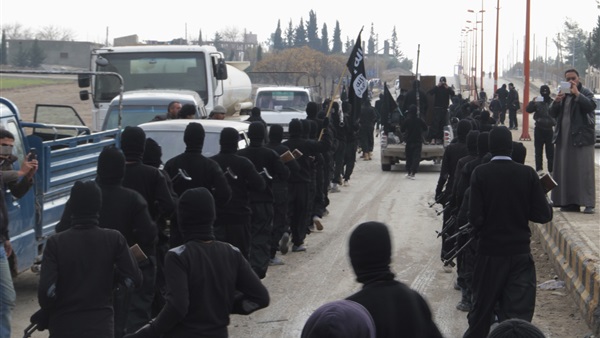Islamic Caliphate

Successive developments in the Arab region during the past seven years have renewed debates on the utopia that is the "Islamic Caliphate".
Since
Daesh leader, Abu Bakr al-Baghdadi, promulgated himself the "Caliph of
Muslim" in the second half of 2014, his organization has been parroting a
narrow understanding of verses from the holy Quran and the sayings of prophet
Muhammad {Peace be upon him} that make it necessary for Muslims to swear
allegiance to him.
The
terrorist organization did not stop here. It, however, went as far as saying
that every Muslim has a religious duty to obey the caliph. It even considered
this obedience a basic tenet of faith, one that comes second only to the need
for Muslims to protect their religion, their lives, their children, their
money, and their intellect.
A
Muslim is considered sinful, Daesh said, by not establishing the Islamic
caliphate. Muslims will be severely punished by God, it added, for committing
such a sin.
By
the time of his death, Prophet Muhammad did not specify a system for selecting the
head of an Islamic country. Instead, the prophet left this issue to be decided
by Muslims wherever and whenever they are.
Nonetheless,
some Muslims have been busy trying to find evidence in the religious texts for
their perception of the caliphate since then.
While
there have been diverse views on this issue, everybody agrees that a caliph is someone
who carries out the role of Prophet Muhammad himself, when it comes to running
the affairs of the Islamic state, commanding the army, drafting general
policies, and monitoring the performance of public utilities.
In
case of an empire, a caliph must have a viceroy in each individual state or
province within this empire. This viceroy has to head and implement the orders
of the caliph, who heads the empire as a whole.
The
caliph also has to have advisors chosen from among the public. These advisors
must have expertise and wisdom.
The
caliph's religious roles include observing the teachings of the Islamic
religion when it comes to running the affairs of the state and the general
behavior of the citizens of this state.
A
caliph, in the light of this concept, is a guardian of all Muslims, both inside
the caliphate and outside it. Muslims have allegiance to this caliph, whether
they declare this publicly or not.
However,
questions remain on whether the caliphate is a well-defined and fixed religious
model specified by the religious texts, or a historical concept that keeps
developing.
The caliphate as a concept is not mentioned in a political sense in the holy Quran. None of the chapters of the holy book of Muslims includes this concept in a clear way. Nonetheless, concepts derived from it are mentioned in the book. There is no evidence in the Quran that the word "Caliph" has a political connotation.
Verses where the word is mentioned do not include a direct
reference to the meanings fundamentalist organizations try to give to it. It is
always mentioned in general terms. It does not specify the system of rule that
should be followed by Muslims.
In
his book, "Islam and the Origins of Rule", justice Aly Abdel Razik
(1888 – 1966) says none of the sayings of Prophet Muhammad carries any
reference to the caliphate being one of the basics of the Islamic religion.
God, the author says, also makes it necessary for Muslims to protect
non-Muslims as long as they live in an Islamic territory.
Muslims
are under obligation, Abdel Razik says in his book, to be generous to those who
ask them help and have respect and mercy on the poor.
God
also orders Muslims, he writes in the book, to free slaves and treat them well,
even as slavery as a concept is far from favorable in the Islamic religion.
None
of the radical organizations that emerged in the past years presented a
documented research, justifying the presence of a caliphate.
They,
instead, depended on the longing many Muslims have for the model of the Islamic
state which thrived in the first and second Islamic centuries.
The "caliphate" as a term is twisted by all groups to serve purely political purposes. Sunnis have an understanding of this concept, which differs from that of the Shiites. Shiites believe in the importance of the presence of the imam and restrict this title to 12 people only.
Sunnis, say however, a
caliph can only come from the mercantile tribe of Prophet Muhammad, namely
Quraysh.









